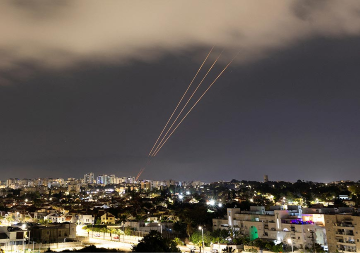
The Taliban have won on the battlefield and on the negotiating table. After nine rounds of talks, US Special Representative Zalmay Khalilzad seems to have conceded and compromised at every step.
It was not a “peace process” because there has been nothing peaceful about the process. It has unfolded against a continuous spiral of violence by the Taliban, including the most recent attack on a compound in Kabul where foreigners lived. To rub it in, the Taliban orchestrated it while Khalilzad was in town to brief President Ashraf Ghani.
At the most basic level, the agreement to reduce US troops is not “conditions-based” as promised in the South Asia strategy unveiled in 2017 by President Donald Trump. It is based on the 2020 US presidential elections and war fatigue.
Trump has repeatedly telegraphed his desire to get out and steadily lost negotiating leverage. Thus Khalilzad’s frenetic pace and over projection of apparent success.
US has seemed more keen on the deal than the Taliban which has resulted in a deal heavily tilted in Taliban’s favour – it’s their timetable, their sequencing and their diktats with no consideration for the Afghan government.
But not everyone is with Trump in his impatience to withdraw troops, not even John Bolton, his national security adviser or his loyal friend Senator Lindsey Graham. Graham has said categorically that the US should “never outsource its national security to anyone, especially the Taliban” and a rush to withdraw forces may find the US on the cusp of a “strategic blunder.”
Discussions among various US agencies are also not settled, including how to ensure a future presence of the CIA in Afghanistan to “monitor” foreign terrorist groups and Taliban’s promises. The Pentagon is uncomfortable with Khalilzad’s tactics and concessions and views the Taliban hardliners as a continued threat besides Al-Qaeda and the Islamic State.
The text of the agreement between the Taliban and the United States has been finalized, according to reports and awaits a nod from Trump. A separate deal between the Afghan government and the US reportedly called a “declaration of peace” would be announced simultaneously.
Intra-Afghan talks are supposed to start in Norway within two weeks of the announcement of both deals. But those talks will be held against the clock. Constitutional changes, the rights of women, education for girl children – in other words the rights Afghans have come to enjoy – will be discussed under a strict deadline tied to US troop withdrawal. One can only imagine the outcome.
The right to education for Afghan girls is dependent on support from the US but when those discussions take place, US leverage would have been further reduced. Taliban have used consistently vague language when discussing women’s rights or freedom of the press.
The US has agreed to withdraw 5,400 troops from five bases within 135 days of signing the deal and come down to zero by October 2020 depending on an intra-Afghan settlement between Afghan government representatives and the Taliban. NATO forces will also be reduced in the same time period. The US currently has about 14,000 troops in Afghanistan while NATO has 8,000.
Thousands of Taliban prisoners will be released – by one count 13,000 – and the Afghan government will request the UN Sanctions Committee to remove key leaders from the list by September end.
The agreement also reportedly mentions the “Islamic Emirate of Afghanistan” -- Taliban’s preferred name -- which harks back to their first stint as the “government.” A few years ago the peace process fell apart around this demand by the Taliban to call themselves the Islamic Emirate but Khalilzad apparently saw no reason to deny them a “huge propaganda victory” this time.
Taliban’s preference for the old name bolsters their narrative that they are the legitimate government, and not those that came after their ouster by the US in 2001 following the 9/11 attacks.
For all the give by Khalilzad, the Taliban have given very little in exchange. Their “promise” to sever ties with Al-Qaeda has been questioned by experts. Over the years intermarriages have taken place and Al Qaeda leaders have pledged allegiance to Taliban leadership. In other words, Al-Qaeda is embedded within the Taliban.
The secrecy around the text of the US-Taliban agreement – even Ghani has not been given a text only shown one – raises further questions around Taliban’s commitment on counter-terrorism on not allowing Afghanistan to become a terrorist hub again.
To begin with, the Taliban has its own definition of terrorism, which differs vastly from the US definition. It’s unclear whether Khalilzad has pinned Taliban down on a common definition.
Will Taliban only deny safe haven to terrorists or also pursue international terrorists and drive them out of Afghanistan? Do they have the commitment or resources to do either? They have made promises to denounce terrorism but not to fight it.
Besides, the Taliban are fragmented and not all factions want a peace deal. The Haqqanis apparently want a military victory, the drug faction is more interested in maintaining supply lines and those involved in business want to make deals.
They are agreed on one thing – they do not want elections. The presidential elections scheduled for September 28 might be postponed, or worse, shelved altogether. It would be another concession by Khalilzad to the Taliban and Pakistan. If the elections are not held and the intra-Afghan talks in Norway produce a weak deal for Kabul, it would be a win-win for the Taliban.
The gains made over 18 years in pushing back medievalism at great cost to both Afghan and American lives will fritter away at the negotiating table. On one side will be Taliban, triumphal in victory statements and on the other will be a weaker delegation of Afghans trying to save what they have with no US presence in the room.
The views expressed above belong to the author(s). ORF research and analyses now available on Telegram! Click here to access our curated content — blogs, longforms and interviews.




 PREV
PREV


